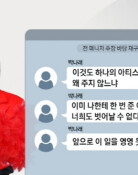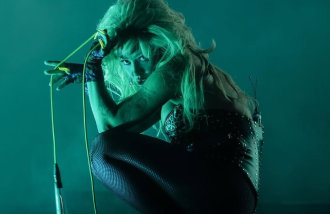Dont break balance between religion and politics
Dont break balance between religion and politics
Posted November. 30, 2013 08:56,
After a mass demanding President Park Geun-hyes resignation by some priests in the North Jeolla provincial chapter of the Catholic Priests Association for Justice, including senior priest Park Chang-shin, who caused controversy by making remarks defending North Koreas artillery attacks on South Korean Island of Yeonpyeong, monks and nuns of the Jogye order of Buddhism and pastors of the Protestant Church have issued statements decrying the government over current political conflict in succession. In the Jogye Order, a group led by the association of practical Buddhist monks demanded President Park to make a public apology and warned it could demand her resignation going forward. In the Protestant Church, a group led by the national council of pastors for justice and peace also held a press conference and demanded President Park to resign.
The Catholic Priests Association for Justice, the association of practical Buddhist monks, and the national council of pastors for justice and peace are religious organizations that spearheaded the alliance between the Democratic Party and the Unified Progressive Party as members of the opposition camps roundtable meeting, and which supported Democratic Party candidate Moon Jae-in during last years presidential election. The public are well aware that their statements against the government on the current situation do not reflect the opinions of the entire Catholic Church, Jogye Order and Protestant Church.
The National Intelligence Services intervention in the election is without doubt an act that damaged the value of democracy, and religious leaders can also express their opinions about it. However, it is not desirable for religious leaders, who should speak and act more prudently than anyone else, to issue statements one after another against the government as if participating in a relay run, saying that they take the lead because no others are doing it.
Religious priests, who have more interest in worldly affairs than the original purpose of religion, have been intervening in all different issues involving ideology, including the candlelight vigils against the resumption of U.S. beef import, the four-river restoration project, construction of a naval base in Jeju Island, and construction of power transmission towers in Miryang, on top of national politics. Even without priests intervention, our society has the capacity to correct and reform the wrongs on its own. If priests with ambiguous, self-righteous beliefs such as love of life, love of peace, and life and peace, intervene in issues that could be addressed through discussions by residents and experts, it becomes all the more elusive for the latter to reach compromises.
Over this weekend, people opposed to the construction of power transmission towers are set to head to Miryang from different parts of the country by using so-called Hope Busses. The person who leads the Hope Bus campaign for Miryang is senior priest Moon Gyu-hyeon with the Catholic Priests Association for Justice. The project to construct a naval base in Jeju kicked off with a bumpy start, but Catholic priests and nuns are holding daily mass of life and peace at the entrance to the site. There are few countries in the world where religious leaders step forward to put the brakes on all different state affairs of controversy as in Korea. While it is already tough for the public to worry about politics, the public now have to worry about religions as well? It is hoped that religious leaders leave earthly matters to society, and now return to where they belong.



![[단독]내란특검 “尹계엄 목적… 자신의 반대 세력 제거”](https://dimg.donga.com/c/138/175/90/1/wps/NEWS/IMAGE/2025/12/04/132897558.1.jpg)
![[단독]“맞은 뒤 돈 뺏겨” 신고자, 알고보니 보이스피싱 총책](https://dimg.donga.com/c/138/175/90/1/wps/NEWS/IMAGE/2025/12/14/132960463.1.png)


